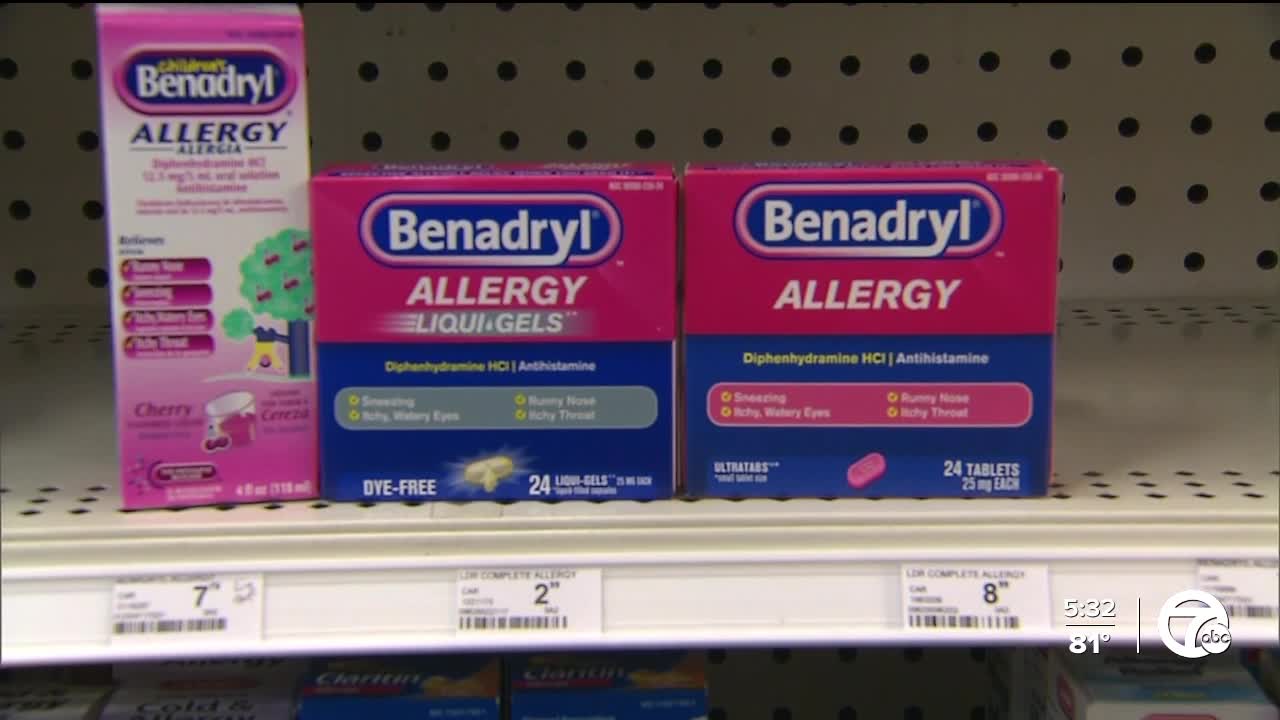(WXYZ) — In today’s Health Alert, a common over-the-counter medication that’s been in American homes for decades is now being called outdated and even dangerous by allergy experts.
We’re talking about the allergy drug diphenhydramine, best known by the brand name Benadryl.
Diphenhydramine is a first-generation antihistamine. It’s been around since the 1940s. People use it to treat allergies, cold symptoms, itchy skin from bug bites or poison ivy, and sometimes to help them sleep.
Now, here’s how antihistamines work. They block receptors called H1. These are part of how your body reacts to allergens, which are substances that can cause an allergic reaction in some people. When those receptors are triggered, you can get symptoms like sneezing, itching, and a runny nose.
But while diphenhydramine can help with sneezing and itching, older drugs like this one also affect other parts of the brain. They can make you very drowsy, slow your thinking, and, in some cases, cause dangerous heart problems.
What’s also concerning is that in older adults, diphenhydramine can stay in the body for up to 18 hours. That increases the risk of falls and disorientation. In children, it can cause extreme sleepiness, agitation, hyperactivity, accidental overdose, and, in rare cases, coma or even death. That’s why experts say it’s time to move on to safer options.
A review led by allergy experts from Johns Hopkins University and the University of California, San Diego, is recommending that diphenhydramine be taken off the market, or at least moved behind the counter. That way, pharmacists can help guide people toward safer choices. What many people don’t realize is that diphenhydramine is in more than 300 over-the-counter products, often combined with medicines for coughs, colds, and flu. So, people may be taking it without realizing it.
As for other options, for most seasonal allergies, hives, or mild allergic reactions, second-generation antihistamines are a much better choice. These include loratadine, known as Claritin, cetirizine, known as Zyrtec, or fexofenadine, known as Allegra. They last longer, are less likely to make you drowsy, and are generally safer for kids and older adults.
For little ones with nasal congestion, saline drops and gentle suctioning can help. And for a serious food allergy reaction, epinephrine - not Benadryl - should always be the first treatment.
The most important thing is to check with your pharmacist or doctor before taking diphenhydramine. They can help you find the safest option that treats your symptoms with the fewest side effects.



